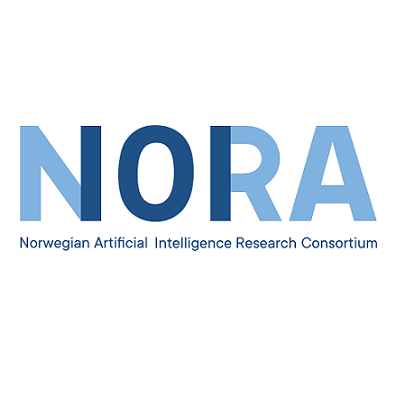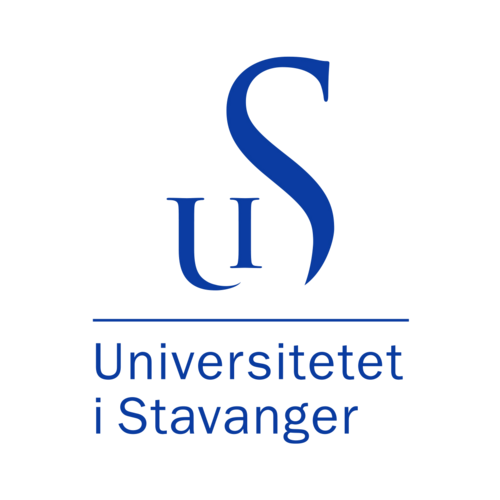The University of Stavanger combines applied research, interdisciplinary expertise, and modern technologies. Its focus is on sustainable solutions to the challenges of our time – ranging from environmental issues and digitalization to the development of future-proof regions.
Through the Norway Mobility Program, data science talents have the opportunity to gain valuable research experience at the University of Stavanger.
Within an interdisciplinary and application-oriented environment, they can contribute their expertise to data-driven projects that address current societal, technological, or environmental challenges.

About NORA
NORA - Norwegian Artificial Intelligence Research Consortium
The University of Stavanger is a partner of NORA, the Norwegian Artificial Intelligence Research Consortium. This initiative aims to strengthen Norwegian research, education, and innovation in the fields of artificial intelligence, machine learning, and robotics, as well as other relevant areas that support the development of AI applications.
Together with HIDA, NORA co-organizes the Norway Mobility Program, which offers doctoral researchers and postdocs from the Helmholtz Association and NORA partner institutions the opportunity to participate in a research stay in Norway.
.
The University of Stavanger (UiS) is one of Norway’s leading research universities. Its work is driven by a commitment to addressing key societal challenges through outstanding research and engaged teaching – in close collaboration with industry, the public sector, and international networks. UiS focuses on topics such as sustainable development, digitalization, energy, health, and education – always with the goal of translating new knowledge into practical and societal impact.
Research priorities:
- Sustainable Energy and Infrastructure
- UiS develops innovative solutions in renewable energy, offshore technology, smart grids, and sustainable urban development – with a strong commitment to green transformation.
- Digitalization and Artificial Intelligence
- Research in data science, machine learning, explainable and trustworthy AI, cybersecurity, and digital transformation defines UiS’s technological progress. Special emphasis is placed on interdisciplinary applications in education, healthcare, and industry.
- Health and Care Innovation
- The university is a pioneer in research on health promotion, telemedicine, age-appropriate care, and digital technologies in healthcare – often in partnership with municipalities and international research clusters.
- Education, Learning and Societal Change
- UiS focuses on didactic innovation, educational technologies, learning analytics, and inclusion through its Center for Educational Research.
- Climate, Environment and Societal Resilience
- Research is centered on ecological adaptation strategies, marine and coastal studies, and the sustainable development of regions in times of climate change.
With approximately 1,600 staff and around 12,000 students, the University of Stavanger is one of Norway’s most research-intensive institutions.
University of Stavanger's mexpertise in the field of Data Science and AI
At the University of Stavanger, Data Science and AI are central pillars of interdisciplinary research and innovation.
Across its various campuses, the University of South-Eastern Norway drives forward-looking developments in fields such as healthcare, engineering, education, and sustainability.
- Machine Learning and Predictive Analytics
- Development of robust models for pattern recognition, forecasting, and decision support — with applications in healthcare, mobility, and public administration
- Big Data and Cloud Computing
- Designing scalable data infrastructures and analytical tools for large-scale datasets in social, technical, and environmental domains
- Explainable and Ethical AI
- Research on transparency, fairness, and trust in AI systems — especially in education, public services, and social welfare
- AI in Health and Care
- Creating AI-powered solutions for remote diagnostics, health monitoring, patient interaction, and assistive technologies in care settings
- Intelligent Systems and IoT Integration
- Applying connected sensors and real-time data in smart city concepts, energy grids, transport systems, and environmental monitoring
- Learning Analytics and Educational Technology (EdTech)
- Adaptive learning platforms, behavior-based interventions, and AI-assisted curriculum planning to support learning outcomes and individual development
Interested in a research stay at the University of Stavanger?
Find out more about the Norway Mobility Program!
Wie funktioniert die Bewerbung?
- Step 1: Contact a research group at one of the NORA member institutions to discuss the possibility of a three-month research stay.
- Step 2: Submit your Application through HIDA
- Step 3: Applications are reviewed by a selection committee, and you will be notified shortly thereafter.
You can find more details about the application process here!
If you have any questions about the Norway Mobility Program or our other research stay offerings, please don’t hesitate to contact us at any time.
Contact
If you have any further questions on this or our other mobility programs, please do not hesitate to contact us.

Stefanie Gruber-Sliva
Networks & Mobility Program Manager
Contact







